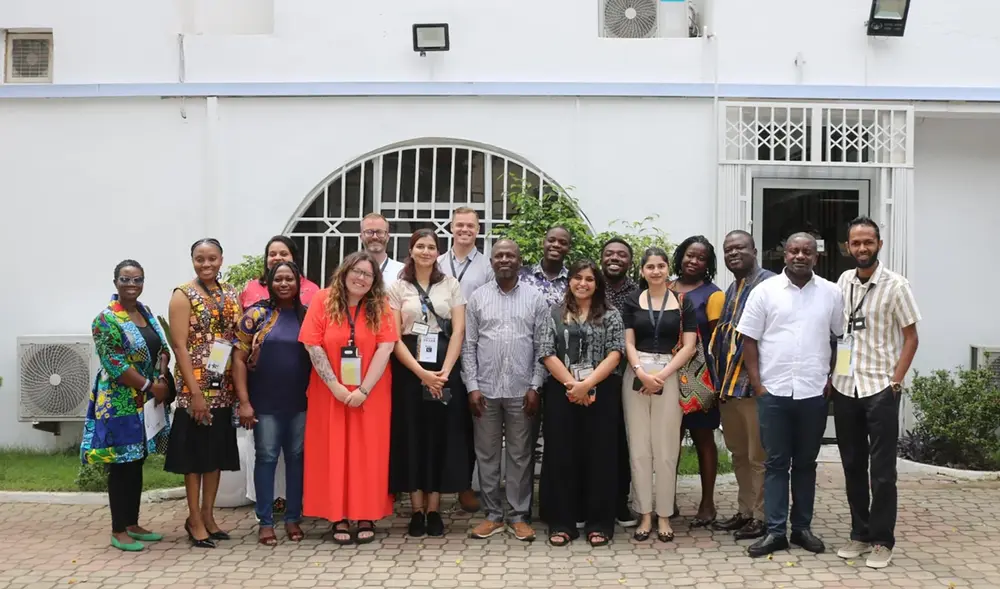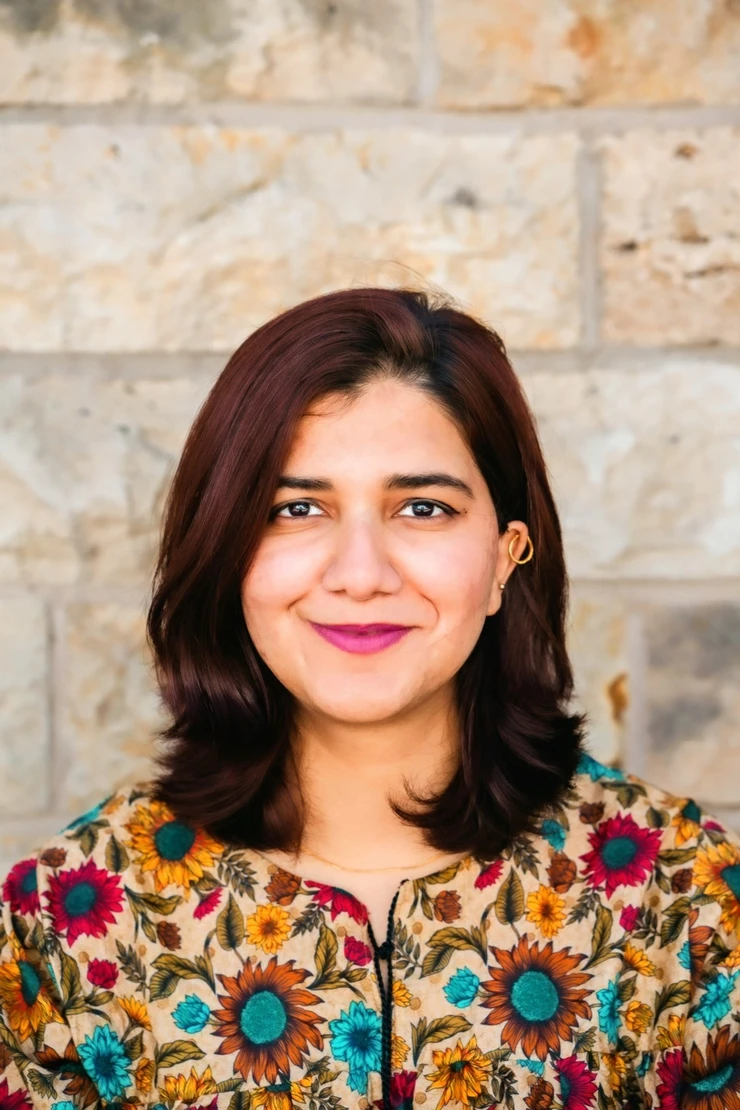From Social Impact Lab to Co-Lab: Journey Through the Global Solvers Accelerator

As part of my academic journey through the Brandt School’s Master of Public Policy program, I am availing myself of the opportunity to specialize in Non-Profit Management and Social Entrepreneurship, which align with my goal to create a positive social impact in my community. In the first semester, one of the standout courses I took was Social Entrepreneurship, taught by Aletta Haniel Professor for Public Policy and Entrepreneurship Prof. Dr. Heike Grimm. This course was highly immersive, interactive, and pushed me to explore my creative side. The structure of the course fostered innovation and a deeper understanding of social entrepreneurship from a pragmatic global lens.
One of the key components of this course was an assignment to design a social business that could potentially be implemented in the students’ home countries. For me, this was one of the most exciting challenges of my academic journey. With constant feedback and guidance from Prof. Dr. Grimm, I began developing the idea of my project “Muqaami,” a social business aimed at empowering the local artisans in Pakistan. Muqaami intends to bridge the gap between the local artisans in Pakistan - who produce exquisite handicrafts of a high cultural and ethnic value but lack resources, literacy, and access to the wider customer base - and the younger generation that is eager to connect back to cultural identities and wants to live with a sense of belongingness while supporting the local market. Through Muqaami, I want to provide a viable solution by creating an online marketplace that directly connects local artisans with consumers, providing them with a platform to share their stories, showcase talent, and sell their handmade products.
During this course, I also got the golden opportunity to present my business idea at the Social Impact Lab, a platform for young entrepreneurs to share their business proposals with a panel of experts, donors, and mentors offering feedback and support. Presenting Muqaami at this platform was extremely rewarding and a great learning experience. Prof. Dr. Grimm, who had been a steadfast supporter of mine, appreciated my business pitch and encouraged me to apply for the Global Solvers Accelerator (GSA) Program 2024, run by the Melton Foundation. I was among the 20 participants and international social impact practitioners selected for the program after a competitive screening process.
The GSA Program is an eight-month-long collaborative learning project for young leaders working to achieve SDGs through their social impact projects. The program is designed around the foundational idea of “Global Citizenship” bringing together people from all around the world to address global issues from a local context, making it an enriching experience. Throughout the GSA we are guided by experienced professionals and mentors who help us refine our projects, identify areas of growth, and work through difficult challenges that arise when working for social change. All of this is achieved through collaborations among participants who come from diverse backgrounds but share a similar vision to make the world a better place.
“The Global Solvers Accelerator connects, empowers, and transforms emergent agents of social change across the globe” (Melton Foundation, 2024, para. 5).
The highlight of the program so far was undoubtedly the Global Solvers Co-Lab, an in-person event that brought all participants together in Accra, Ghana, in July 2024. The Co-Lab was a melting pot of ideas, experiences, and cultural exchange. It has been an honor and privilege to be part of a group with participants from more than 15 countries and five continents. Each person brought a unique perspective, making the discussions on social development extremely innovative and thought-provoking.
“The Global Solvers Co-Lab is the space where sectors, cultures, identities, and know-how converge into something ‘greater than the sum of its parts’” (Melton Foundation, 2024, para. 4).
We visited various landmarks, art galleries, local markets, and monuments in Accra, all representative of its rich culture and history. One of the most impactful parts of the Co-Lab experience for me was the field visits to organizations working on various social impact projects across Ghana, organized by the Melton Foundation team. With a group of GSA participants, I visited “Global Communities Ghana,” learning about their initiatives and community-led projects on WASH (Water, Sanitation, and Hygiene). These visits allowed me to see firsthand the challenges faced by communities in Ghana and reinforced the importance of empowering local communities to address social issues.
Another highlight was attending the Co-Converge HUB organized by MEST Africa, a networking reception that brought together professionals in the field of sustainable development. This event was a fantastic opportunity for me to meet and engage with experts who are leading the way in collaborating with their local communities to resolve development issues.
Cultural exchange was woven throughout this Co-Lab experience. From collaborative cooking sessions, dance workshops, paintings, and sculpturing to storytelling nights, all activities instilled a deeper connection among the participants, bringing us closer and making us appreciative of diversity.
One workshop that left a lasting impression on me was “Principles of Dialogue,” where we explored principles for the effective and inclusive dialogue required to successfully collaborate for social impact. An additional aspect of the Co-Lab was the formation of Synergy Circles – smaller groups where all participants dove deeper into our project ideas, worked through specific challenges, and committed to mutual accountability and support for the projects’ progress. These circles provided me with an intimate setting for reflection and peer support.
Over the last few months, the Global Solvers Accelerator Program has been instrumental in helping me develop my idea of “Muqaami” into a more actionable project. I have gained crucial skills in project management, team building, intercultural communication, collective leadership, design thinking, and stakeholder management. As I continue to collaborate with my peers and the Melton Foundation team and receive constant mentorship, I am excited to take the next steps required for launching Muqaami and contributing to the empowerment of Pakistani artisans. This experience has been transformative, and I look forward to applying everything I have learned so far in my journey to create meaningful social impact, as well as to taking support from the relationships built through GSA.
References
Melton Foundation. (2024). Connecting hearts, hands and minds to advance sustainable development. https://meltonfoundation.org/global-events/global-solvers-co-lab/
About the Author

Naqsh Nasir has worked in the development sector of Pakistan for five years. Her work is focused on promoting education, gender equality, and empowering youth. In 2021, she co-founded Technojawan, a youth-led organization, aiming to promote digital literacy among young girls. She is a DAAD Scholar, a current Melton Student Fellow, and Global UGRAD alumna. At the Brandt School, she is specializing in Non-Profit Management and Socio-Economic Policies.
~ The views represented in this blog post do not necessarily represent those of the Brandt School. ~